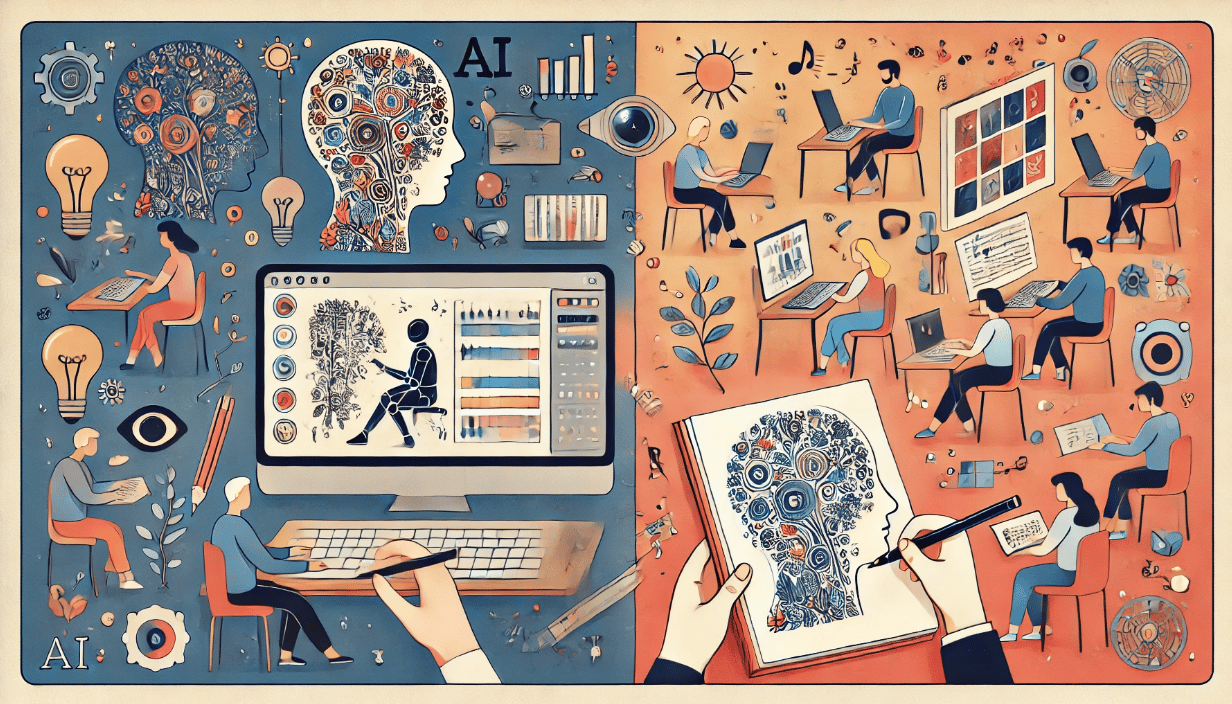
AI Boosts Individual Creativity but Lowers Group Originality
A new study has explored the impact of AI on creative tasks, revealing that while AI can enhance individual creativity, it may reduce the overall creativity of a group. The research, conducted by Anil Doshi from University College London and Oliver Hauser from the University of Exeter, was published in Science Advances.
Study Overview
The experiment involved participants writing very short stories, with some groups having access to AI-generated story ideas from GPT-4. The results showed that AI assistance helped less naturally creative individuals produce more original stories. However, it also led to less varied and more similar outputs among the group as a whole.
"Our study represents an early view on how large language models and generative AI will affect human activities, including creativity," Hauser told TechCrunch. He emphasized the need for rigorous evaluation of AI's impact on creativity rather than assuming positive outcomes.
Experiment Details
Hundreds of participants were asked to write short stories, with some groups receiving AI-generated ideas. The stories were then rated on originality, usefulness, and emotional enjoyment by both their writers and a second group unaware of the AI involvement. The study also used a word-production task to approximate each participant's creativity.
The findings revealed that individuals with lower creativity scores benefited the most from AI assistance, producing higher-quality stories. However, those with higher creativity scores saw little to no benefit, and in some cases, their creativity scores were slightly lower with AI assistance.
Collective Creativity Concerns
One significant finding was that access to generative AI made the stories more similar to each other, reducing collective originality by about 9% to 10%. This suggests that while AI can boost individual creativity, it may lead to a decrease in overall creative diversity.
"While these results point to an increase in individual creativity, there is risk of losing collective novelty. In general equilibrium, an interesting question is whether the stories enhanced and inspired by AI will be able to create sufficient variation in the outputs they lead to. Specifically, if the publishing (and self-publishing) industry were to embrace more generative AI-inspired stories, our findings suggest that the produced stories would become less unique in aggregate and more similar to each other. This downward spiral shows parallels to an emerging social dilemma: If individual writers find out that their generative AI-inspired writing is evaluated as more creative, they have an incentive to use generative AI more in the future, but by doing so, the collective novelty of stories may be reduced further. In short, our results suggest that despite the enhancement effect that generative AI had on individual creativity, there may be a cautionary note if generative AI were adopted more widely for creative tasks."
The researchers warned that widespread use of generative AI could result in a self-perpetuating cycle of reduced creativity, as AI-generated content becomes increasingly similar. They emphasized the importance of ensuring diversity in creative ideas as AI technology continues to develop.
Future Research Directions
Hauser and Doshi acknowledged that their study is just the beginning, with many avenues for future research. They highlighted the need to explore the implementation of generative AI in real-world settings and its long-term impact on creativity across various mediums, including writing, art, and music.
